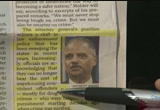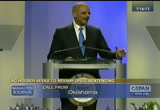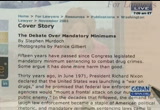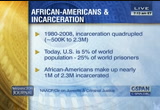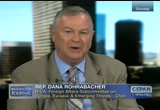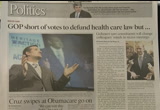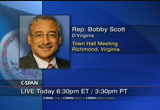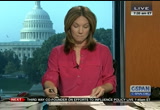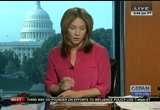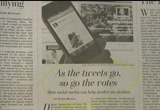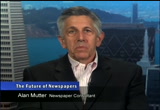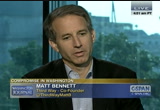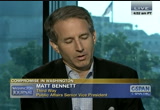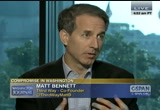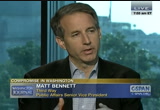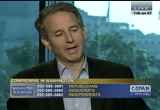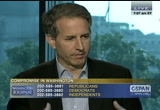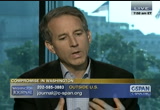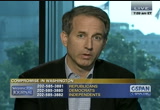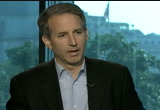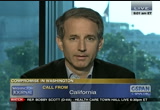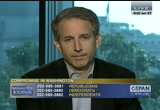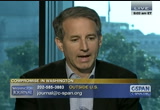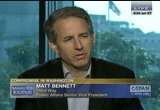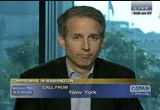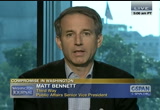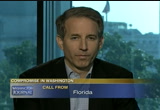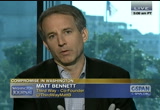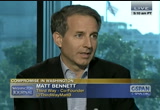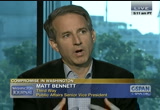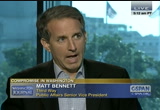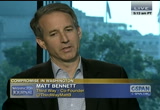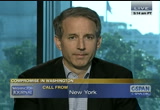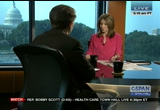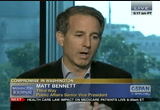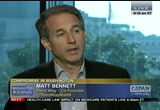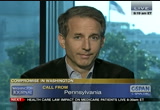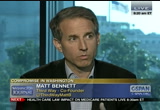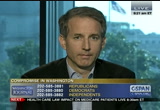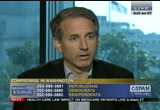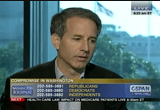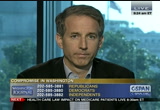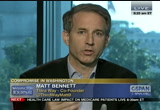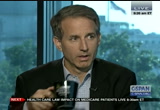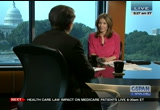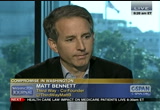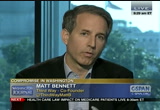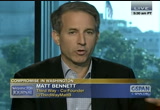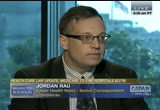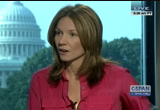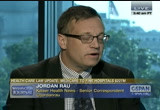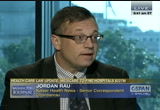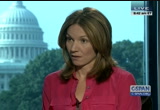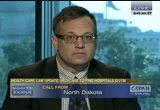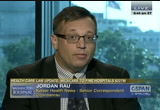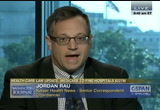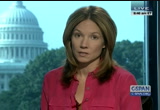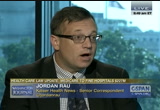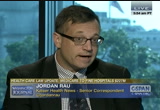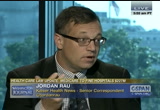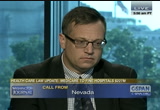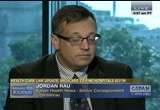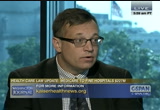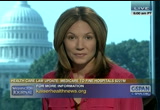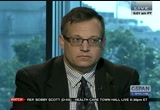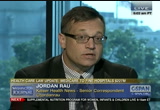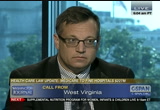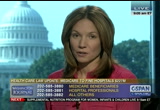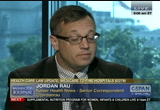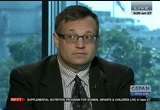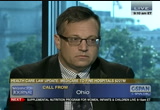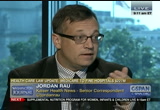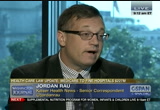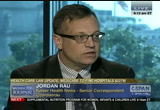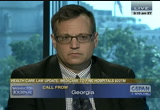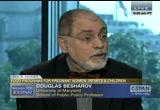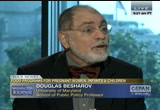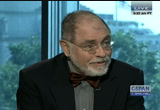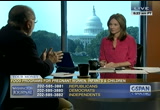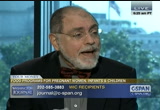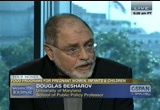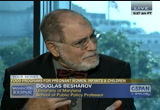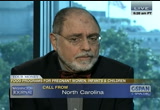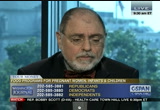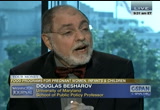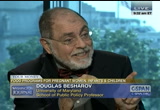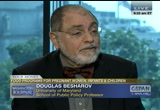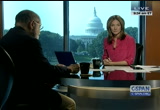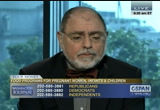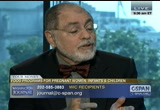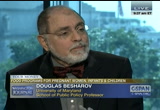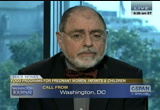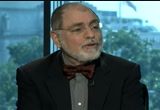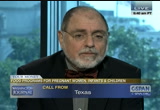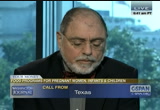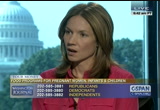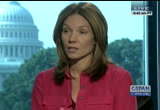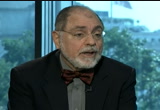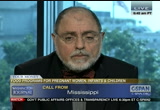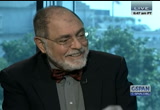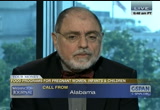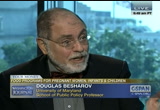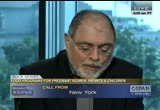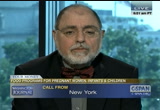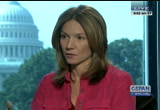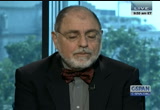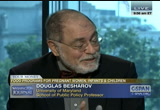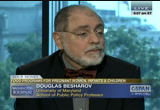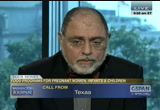tv Washington Journal CSPAN August 12, 2013 7:00am-10:01am EDT
7:00 am
special supplemental nutrition program for women, infants, and children, commonly known as wic. "washington journal" is next. ♪ good morning. august 12, 20 13. attorney general eric holder is set to announce that low-level, nonviolent drug offenders will no longer be charged minimum mandatory sentence -- sentences. it is part of an overall package to reform american prisons. he will make the remarks at the american bar association today in san francisco. we want to begin there. what is your take on the attorney general's proposal to reform the prison system in this country? republicans -- democrats -- independents --
7:01 am
you can send us a tweet if you go to twitter.com @cspanwj. on our facebook page, facebook.com/c-span. or e-mail us. we will begin with the front page of the "washington post" -- this is what the attorney general is going to propose, that low-level, nonviolent drug offenders with no ties to gangs or large-scale drug organizations will no longer be charged with offenses that impose severe mandatory sentences. it goes on to say it goes on to say
7:02 am
7:03 am
robert in windsor mill, maryland, a democrat. you are up first. what do you think? caller: good morning. i think this is definitely a move in the right direction. although i think it is going to continue in baby steps. what is really needed is first full-blown legalization of class d drugs such as marijuana and things like that. a lot of these guys that are being incarcerated are basically stigmatized as second-class citizens. they are not able to get jobs. they cannot vote.
7:04 am
advocatepeople who private prisons are doing for profit motives. i think these profit-driven industries such as private prisons are a detriment to our country because when these , crimes were initiated nationally was at an all-time low. the so-called drug war that was initiated through the reagan administration at the time took place during an all-time low as far as drug crime and so forth. what happened was they needed to justify the so-called war on drugs. that is when they went down towards central america and got caught with their hands in the cookie jar come as far as selling drugs up through the country with the cia. is what they use to justify their war on drugs. they used a national marketing
7:05 am
campaign by painting certain cities as being drug havens. they even had a so-called poster child, willie horton, back in a 1980s. -- in the 1980s. this was during a time when historic drug crime was at an all-time low. host: we will hear from another democrat, tim and mt. hope, arkansas. caller: good morning. finally we are seeing common sense in washington. this is a very important day. host: why do you say that? caller: we are starting to see -- we are starting to think straight. we are not thinking straight when we lock people up for smoking marijuana, especially when it is proven medicine. i've got glaucoma. i suffer from severe neck and back pain. if i was in any other state but state thatny other allows medical marijuana, i would be a patient driven in arkansas, i am a criminal. i've been arrested a few times for marijuana.
7:06 am
it is always the same thing. they want your money. they want to lock you up. they want to harass you. they want to search her home. they want to take your cars. it is kind of like a mafia state down here in arkansas as far as keeping medical marijuana users from their medicine. host: have you had to do prison time? caller: no, but i have points 20 -- i have spent plenty of time in the back of the county jail. it is not a fun experience being labeled a criminal when you're just trying to medicate your glaucoma and chronic neck and back pain. maybe our society has become little bit more compassionate. host: how come you haven't had to serve prison time? -- you know, i haven't gotten in trouble enough. it is always a misdemeanor. if you stay out of trouble for three or four or five years, it is always every four or five years, i always seem to get in
7:07 am
trouble. host: vance, oklahoma city, a republican. caller: hello. i think this is a political move on the part of the obama administration. obama has been probably the most oppressive and most anti-libertarian president this country has had since woodrow wilson. moveis going on with this -- baracklder is this obama wants to divide the libertarian wing of the republican party led by rand paul from the authoritarian gop establishment. i predict within the year that obama and holder will call for the total legalization of marijuana. a vast part ofp
7:08 am
7:09 am
what do you think, vance? caller: i think it is interesting that jeb bush and newt gingrich have actually come along on this, because they have traditionally been with the authoritarian wing of the republican party, and i of course applaud rand paul for calling for judicial discretion in these cases. sentencing wasum a very bad idea because it was a one-size-fits-all approach to judicial sentencing, and sentencing should be done on a case-by-case basis. host: a little history for our viewers. this is from the d.c. bar association, from their website. in june 1971, president richard nixon declared that the united states was launching a war on drugs. federal lawthat enforcement agencies would mount a frontal attack on our number one public enemy. in the decades that followed,
7:10 am
7:11 am
here is what supporters of mandatory sentencing say. first, they believe the harsh penalties would act as a deterrent, fewer people would be inclined to risk involvement with drugs, and second, those convicted of drug trafficking would be incapable of committing further crimes because they would be in prison. it goes onto say, third, in order to avoid extremely long prison sentences, those arrested would be more likely to cooperate with law-enforcement, enhancing the ability of the government to put drug gangs and drug cartels out of business. john, saratoga springs, an independent. caller: hello? host: you are on the air. go ahead. caller: yes, it is a real deterrent when we have like one million people in prison right now. that is working out real good for them.
7:12 am
they are making all kinds of money off of this. it comes to the time when you have to do the right thing. i'm not going to call in with some political thing. but i do notian, want to be like republicans trying to get democrats -- they are half the problem. they do not do what is right. they do it will screw over the other side. the fact of the mayor -- the matter is that marijuana should be legalized. it is safer than alcohol. it is safer than cigarettes. i'm 50 years old. i have friends who are dying from drinking. they have been drunk in all their lives are ruined. somehow marijuana got on the bad list of drugs could it is pretty much a drug -- drugs. it is pretty much good -- a joke. it can be used as a medicine. they deny that for years. no, there is no medical value, but now of course they have to admit there's medical value. it is just a bad law.
7:13 am
it is just a bad law. it is not a political thing. it is just putting innocent people in jail basically, the whole marijuana drug war enforcement thing is a total failure. host: here are some numbers for you. these have been quoted in the newspapers this morning on this story about eric holder set to announce that he would like to reform the american prison system and reduce mandatory minimum sentencing for nonviolent drug offenders. --e are some numbers for you from 1980-2008, incarceration quadrupled. you can see the numbers these numbers are from the naacp
7:14 am
as well as the center on juvenile and criminal justice. african-americans incarcerated at nearly six times the rate of whites. let's hear from richard in huntsville, texas, a democrat. caller: thank you for taking my call. all i can say it is about time. this is about time. it has been 40-50 years that this should have been done. it is said that the only thing we as americans learn from history is that we refuse to learn anything from history. if you want to look at a perfect example of this, look at the prohibition. 21st at the 18th amendment/ amendment. prohibition made millionaires out of thugs. now we are making millionaires out of thugs with the so-called war against drugs.
7:15 am
it is about time. said forcaller whatever reason they made marijuana illegal -- if you look at the history, it is all about racism. i am white. let me get that clear. host: john, pensacola, florida. a republican. caller: hello, good morning. watcher of c-span for many years. i'm 70 years old. i have tried many times to get through. i have had no luck until today. comments, ie my would like to state that somebody doesn't do his math correct. in an article you read about 1971, it alsoin stated it was 30 years ago. not according to my math. host: it is probably an older article. my fault. [laughter] caller: tying that into a pursuit in color, he too was lay in all of this trouble at the foot of the reagan administration.
7:16 am
that is incorrect. i have been there in those days. i was a young man living on long island in the days of the beatniks going into new york city before i got out of high school in 1960. i will tell you, within two that thewas convinced legalization of marijuana should hashish andd, maybe other like drugs. i'm glad to see this is coming about. you got in today. thank you for watching all of those years. the front page of "the washington times" -- the piece is written by guy taylor, who joined us on our "newsmakers" crowe graham -- program. quotes our guest, dana rohrabacher, a california republican.
7:17 am
i want to show you the part that guy taylor put in his piece. the congressman is responding to and howa administration it uses its drug policy. mr. rohrbacher said here is congressman rohrabacher in his own words on "newsmakers." [video clip] >> i'm sure sending a drone is legal, but sending a guy with a high-powered rifle is illegal. that type of nonsense we've got to get over if we are going to confront the radical islamic terrorist threat that will murder thousands of our people, even hundreds of thousands of our people, if they get a chance. host: that was congressman rohrbacher on our program. you can go to our video library at c-span.org if you want to watch the whole thing. in a rohrbacher -- dana
7:18 am
rohrabacher also tweeting out saying he would defund white trash, but not our vets, seniors, and other deserving americans to provide benefits to those here illegally. he tweeted that out in response to a constituent complaining about immigration policy. that on the "huffington post" website this morning. sticking with national security, here's the front page of "the new york times" --
7:19 am
7:20 am
texas republican, says he knows his party's deeply divided on risk in a government shutdown by taking a stand against obamacare, but he thinks constituents over the august recess will change people's minds. is anext to that story story about senator ted cruz who was in ames, iowa. he takes a swipe at obamacare. winoes on to say, we can this fight of the defunding effort in washington. the debate goes on during the august recess while members of congress are away and president obama is on his vacation at martha's vineyard. morning, about the domestic front and battles in washington, to hear from "the wall street journal" --
7:21 am
that happening in washington too as members of congress are on this august recess. by the way, we are going to be covering over this month town hall meetings that are happening in your area. today atwe are airing 6:30 this evening pm eastern time is a town hall meeting in richmond, virginia with congressman bobby scott, democrat of that area. tune into c-span. live coverage of that town hall meeting. i'm sure these issues are likely to come up. he meets with constituents.
7:22 am
let's hear from john and pensacola, florida. you are on the air. john and pensacola? westmoving onto joe and hartford, connecticut. an independent. caller: how are you? thank you for c-span. when i heard the topic, i wondered if holder had read a book by michelle alexander. hello? host: we are listening. the name of the book is called "the new jim crow." if you look in the c-span archives, i think you have done an interview with her. she is a professor at ohio state. she is a law professor. her husband is a u.s. attorney from cleveland. if you look at his webpage, he specifically says that he does not agree with her position in the book. in her book, what she says is that the drug policy and the
7:23 am
resulting prison sentences are really the modern -- modern-day embodiment of slavery. are theth that provisions that allow local police to keep any money that is seized in the drug war. if you put all of it together, the question is whether or not holder's policy is brought forward -- who would suffer from it? host: on twitter canton, georgia, a democratic caller. good morning. you are on the air. caller: i am calling from georgia. -- my son is 17 years old. the police came into his mother's house.
7:24 am
with their guns out, they busted him and others. they were kids doing kids things. now he is going to have to suffer the rest of his life for that. i do not understand the law enforcement. they overdo it. they have over done everything for a long time. it is time for them to legalize marijuana. they would probably lay off half the police force in this country. that's all i got to say. sorry, i got a little excited. host: on our facebook page, here are a couple of comments
7:25 am
7:26 am
steve in connecticut, an independent. you are on the air. for taking myyou call. i appreciate it. a couple months ago, i had totally no confidence in attorney eric holder. i probably would have laid him off if i were his boss. he seems squishy to me. since his speech in orlando, florida, at the national association for the advancement of colored people, i think he -- really -- i don't know grown into his own position.
7:27 am
i think he is going to have a great legacy as attorney general for the united states. i think this has been a real turning point, especially since that speech. i don't know if it has anything to do with the trayvon martin ane, but i think he is attorney general for all the people. i'm glad he is taking on the difficult issues. host: we cover that speech. we are showing you a little bit of a be role of that speech -- b-roll of that speech could you said you think you will have a good legacy as the attorney general. what about the criticism over benghazi, fast and furious, other criticism, how the department of justice has handled reporters and leaks to reporters -- what do you think? caller: i agree with a lot of the criticism. i think president obama and eric holder are going down the wrong road with the reporter thing.
7:28 am
i would pull back on that. i think if you look at attorney generals overall, bringing it back to eric holder, he was really squishy back then. he was totally on the defensive. i would have fired him. it seemed to me he could not play political ball in washington. he kept fumbling the ball and fumbling the ball. the issue of him taking on these difficult issues, these are racial issues, i am pleased. i think he is coming back as a person. host: ok. caller in iowa. caller: i hear people talking about marijuana. the real problem is meth labs, heroin, crack. \ i live in a small town, and every week, meth labs are being
7:29 am
busted up in every neighborhood. my town is only 18,000 people. it is an epidemic. you can get strung out on heroin. it is so cheap. five dollars a hit. host: what do you think should be done, butch? attorney effort by the general, does that make you concerned given what is happening in your area? caller: no one is talking about heroin use. the meth labs, that is dangerous. it is like i said. small town of 15,000 people -- i'm 61 years old -- when i grew up, there was nothing like that. it is an epidemic. it is not reaching the national level. host: this is the piece in the "washington times" --
7:30 am
7:31 am
on the sunday talk shows, michael mccaul, republican from texas, the chairman of the house homeland security committee, he was on "meet the press," and here is what he had to say about the administration surveillance program and what the president had to say on friday. [video clip] >> he has not adequately explain them or defended them. now he is in a bit of a mess. on the heels of the irs scandal, where people do not trust this government or administration with their tax records, they sure do not trust this administration with their phone records. >> that was congressman mike mccall, republican of texas. he has up the homeland security committee in the house. dutch ruppersberger, the democrat from maryland, the ranking democrat on the house intelligence committee. he was on cbs's "face the nation." [video clip] thenyone who is working in intelligence area, including the president, understands that this
7:32 am
program helps to protect us. it might have protected us from 9/11 attacks because we do not know that one of the terrorist was in san diego in the united states. if we had known that, it might've helped. >> do you think any reforms are necessary? >> yes, and this is the reason. we have to do with perception, not just reality. we need to do better in educating our public so they are not fearful that we are violating their privacy. that is very important. host: that was the top democrat on the house intelligence committee, dutch ruppersberger of maryland, talking about the nsa surveillance program. that is in the headlines today. also we told you that attorney general eric holder will be making this announcement about revamping the country's drug sentencing laws. he will be speaking to the american bar association in san francisco today. hillary clinton will also be speaking at the bar association gathering in san francisco, this from "the usa today," saying she
7:33 am
will receive the group's highest honor today. look for coverage on c-span.org if you are interested in that. sticking with politics, a lot of speculation about hillary clinton running in 2016. american bart the association, giving that speech today. has thisington post" on their front page about hillary clinton that on the front page of "the washington post." the front page of "the wall street journal," this story about iowa, looking a lot like 2016. patrick o'connor reports
7:34 am
7:35 am
that from "the wall street journal." "thehan weisman writes in "iowa speechs," hints at biden run." priebus, who heads up the national republican committee, was on the sunday shows yesterday, defending his call for a potential gop boycott of nbc and cnn if the networks follow through with plans to produce and air separate film projects on hillary rodham clinton. confirming that he would call for a boycott of any debates hosted by those networks if they go through on that documentary. then finally, "the arizona republic" has this headline
7:36 am
marcus, edgewater, maryland, republican caller. ag holder seeks to revamp drug sentencing could what do you think -- sentencing. what do you think? caller: i am a black male, 47 years old. ahave experienced personally very harsh sentence for a miniscule amount of hashish when i was in the military. jailgave me two years in and a bad conduct discharge. then my wife who was along with me got three months of general discharge. it was not cocaine, not heroine. it was just some hashish. it was only to -- it was only
7:37 am
$10 worth. by, theears have gone sentencing has gotten much harsher for young black males. wish that they would do something about it. it is a nonviolent crime. just because somebody has an addiction doesn't mean that you have to ruin the rest of the right -- their life. onre should be more emphasis rehabilitation, rehabilitating these drug users. dealers,en some drug they do not have opportunities, but there has to be some different approach rather than putting them in jail and giving them a rap sheet that ruins them for the rest of their life. host: we will hear from randy riverside, california.
7:38 am
as we listen to randy, here is from the website, a look at the drugs and five-year mandatory minimum without parole, depending on the amount of drugs, compared to a ten-year thoseory minimum, when kick in, at what quantity of a certain drug. let's hear from randy. caller: good morning. i am a retired correctional officer. at least $35state or $45 a year to keep one inmate. you got to put bodies in there. i am retired -- i have retired in 1991. that was the height of the crack cocaine and all the stuff. i saw so many young men coming .hrough the institution
7:39 am
it is mind-boggling. this think that eric holder is doing is trying to revamp this -- this is a good thing. but states cannot afford this. ,ousing people this long $45,000 a year. host: this is from "the wall street journal," this graphic you can see from 1980 until 2010 how the numbers increase. christopher is next. an independent. caller: how are you doing? host: good morning. caller: the caller from california had a very valid point. i can speak as a federal inmate who spent six years on a drug charge. my first offense. i was maybe 18 or 19.
7:40 am
mitigating factors, mental health issues, posttraumatic stress disorder. christopher, i'm so sorry. we lost you. hopefully you can call back in. today," this is what they say they are watching we talked about that here on ," the case journal in the role of the fbi in it. if you are interested, go to our website, go to the "washington journal" series, and find it there. times" has this he's -- piece --
7:42 am
that from "the new york times." today" --"usa speaking of federal agencies, here is one from "the washington post," headline on the postal service. it says then we mentioned at the top president obama on his vacation at martha's vineyard. here's a picture of him in "the washington post" playing golf. president obama reacts after
7:43 am
missing a putt on the first hole at a golf course in massachusetts. she is due to return to washington next sunday. no public events are planned during his vacation. he will continue to receive daily updates from national security advisers susan rice and robbed neighbors, both of whom are on the island. the obamas are staying on martin -- on martha's vineyard. a 28 acre blue heron farm. their new place is a $7.6 million house overlooking the ocean. it features a swimming pool and a basketball court. jim, republican from new jersey. what are your thoughts on the attorney general seeking to curb minimum sentences for little cash for low-level, nonviolent -- minimum sentences for low- level, nonviolent drug offenders? caller: i think the drug laws
7:44 am
are way too severe on this issue. i am a republican. they are so out of proportion. it is this man has squandered his credibility, i see him being totally handicapped. anything that comes out of the guys mouth is stillborn. host: you do not think it has a -- some bipartisan legislation, when you have people like rand paul supporting it? caller: i'm not surprised by that. i think it is something that needs to be done. if the guy had any credibility or if today's press corps had any credibility, we might be able to get something done. we have been told so many things. look what we were told about the irs. they are still abusing their power. you cannot trust anything from any government agencies. you cannot trust anybody within the obama administration. host: let me mention the "financial times" frontpage. you saw that we were at the port of virginia last week. here is a story on that
7:45 am
we were at the port of virginia last tuesday. if you are interested in all interest in -- and all issues related, take a look at our video library. some other interested -- interesting stories for you. here's the latest "christian science monitor" magazine inside the magazine, they write about the role of the library of congress in trying to catalog digital media, data. it says
7:46 am
there is an effort underway to catalog the big data. i also want to note this for you from the piece just throwing that figure out for you from "the christian science monitor." speaking about data and social media, here is a piece inside "the washington post" this he is an associate professor of sociology at indiana university, and he has found through his study that
7:47 am
nearly every serious political campaign in the united states spent thousands even millions of dollars hiring campaign consultants who conduct these polls and interpret the results. if you're are interested in that, check it out in the" "washington post opinion page, about social media and the impact it will have on campaigns in the future. let me go to sid, louisville, kentucky. your last on this topic about aging older. caller: good morning. -- ag holder. caller: good morning. think this is an incredibly savvy political move. the association for safe access is a national organization that just got started, trying to make
7:48 am
it possible for people who are using marijuana medically to have safe access. the democratic party is going to get a lot of if they 2014 and 2016 can make this happen. a lot of votes. i almost guarantee a win. host: all right. that does it for that topic. we are going to switch gears and come up -- we will be talking about the big debates in washington, the economy, immigration, nsa surveillance, etc. with matt bennett, cofounder of the third way, and how the two sides can reach a compromise on these issues. series incontinue our partnership with kaiser health news to provide updates on the new healthcare law. today's focus is how the law impacts hospitals serving medicare patients. we will be right back. ♪
7:49 am
>> a lot of handsome young officers surrounded my grandmother who was 23 years old at the time. very beautiful. my grandfather was trying to get to her and talk to her, but he could not because of all the naval officers around. they all rushed to go upstairs to do it they had to do good -- to do. she knew my father was up there. she got behind him. my grandfather fell in behind her, going up the steps to the deck. somebody ran out, do not let ms. gardiner out. her father is dead. when she heard that. she fainted. right back into the arms of the president. he caught her tenderly and gently. >> the encore presentation of
7:50 am
our series "first ladies: influence and image," looking at the public and private lives of our nation's first ladies. this week, anna harrison to a liza johnson. all this month at 9:00 eastern on c-span. >> this is a huge story. it is the first time that a true digital native has stepped into one of the legacy media businesses, a newspaper or broadcasting company, and if he ask in any way like he did in disrupting the book publishing business, the bookselling business, the delivery of streaming media, and certainly e-commerce, and mr. bezos probably will disrupt and re- envision what it is to be a newspaper in the 21st century and how that business remains a business. >> journalism itself is changing. it is manifesting itself in very different ways, whether it is a blog or twitter. the intersection between video
7:51 am
and newspapers these days. it is hard to say where it is headed. we are at a stage where it is still being figured out. biting -- buying "the washington post," it is one example. >> the future of the newspaper industry tonight on "the communicators" at 8:00 eastern on c-span 2. >> "washington journal" continues. host: compromise in washington is our topic. matt bennett is the cofounder of third way and he also serves as a public affairs senior vice president. explain to people what third way is and what your goals are. we are commonly referred to as a think tank, but that is kind of a strange turn. it can mean anything from a university without students like the brookings institution over to groups like ours and the heritage foundation and the center for american progress who really work to have impact on policymakers day-to-day.
7:52 am
we are a multi-issue think tank. we are generally centerleft, moderate democrats. we work on basically all the issues you talk about here every day. host: let's begin with one that is getting a lot of attention over the august recess, the affordable care act and the efforts by republicans to defund it. this is "the washington times" guest: we have heard this before. this is a replay of december 2009. august, and home in many of their most passionate constituents came out to these town hall meetings to yell at them about the affordable care act, and they are doing it again. i certainly think mr. louie gohmert is wrong. there is no question that the senate is firm and its support for the aca. there is no chance the president would sign a bill repealing it.
7:53 am
this is all a lot of sound and fury that does not signify anything at all. it is kind of amazing. the house republicans have voted 40 times to repeal the aca. maybe they think if they get to 60 or 75 that will change things. it will not. showingat are the polls from the american public about the affordable care act? guest: when ever big changes are instituted, particularly in healthcare, which is the most personal of all things that government gets involved in, much more personal than anything else that goes on in our lives, people react cautiously, and sometimes they are concerned about it before it goes into effect. we saw the same thing happened 10 years ago when congress added the prescription drug benefit to medicare. not, wasieve it or very unpopular. it seemed confusing. there was a lot of talk about how older folks cannot figure out their way through this maze
7:54 am
of bureaucratic language. incrediblyt it is popular. it has worked out very well. is that ashat -- people become more comfortable with the aca and they recognize all the things they get from it, it will become much more popular. that will happen within the next year or so. host: i want to show you what senator whitehouse had to say. he was talking about the republican party at a recent town hall meeting that we covered. we will get your reaction. [video clip] >> what i see is not actually a lot of conflict between republicans and democrats. what i see is immense conflict, bitter conflict, within the republican party. you have a tea party contingent that has one set of views. you have more moderate republicans with a very different set of views. they are really at each other's throats now. conflict ont out
7:55 am
the floor of the senate. between republicans. you have fights within the caucus among republicans. you have one group raising money against the other group. it is really very, very contentious. we are kind of bystanders to that fight. but we fear the effects of it, because when one party is that divided and there is that much anger and conflict, it is very hard for them to help with getting legislation passed. host: matt bennett? guest: no question senator whitehouse is correct. much of the debate going on in washington is happening only on one side of the aisle, and democrats are bystanders to this debate. when you look at all of the major issues, certainly immigration reform, whether they should continue pounding a relatively on the aca --
7:56 am
irrelevantly on the aca, you have this extraordinary amount of conflict in the republican party. host: we heard from max baucus earlier this year calling it a train wreck. other democratic callers are concerned about the rollout of the affordable care act and what the administration is doing. give and that there is criticism of the law on the left and that republicans do not like it, is there compromise? is there a third way for the two sides to come together and maybe change the affordable care act? guest: i do not think that the level of criticism from democrats is quite as loud as it was back when senator baucus said that. the white house and the administration have made some changes to the rollout. they have slowed some things down. i think they mollified some of the critics within the own -- within the party. i do not think there is a need for or any possibility of compromise on the rollout of the aca. it is already law. it is happening. there will be some tweaks to the
7:57 am
implementation, but the law itself is not going to change. the real need for compromise, the big train wreck that is still ahead of us, is the budget fight coming up. journal" wall street reports on that this morning another gang of eight, john mccain, ron johnson of wisconsin, meeting with white house officials to try to come to some sort of compromise. where is the middle ground on the budget talks? guest: that is the several billion dollar question that everybody is try to figure out. this is very good news. four -- before the immigration battle, it wasn't clear that these gangs of senators could actually achieve anything concrete. but after immigration where they put the bill together, they moved it through regular order through the committee to the
7:58 am
floor and got it passed, it is now clear that gangs of senators who are coming together in good faith the way that that one did, and apparently the way this one is, can have a huge impact. this is very good news. you have senators like senator johnson who are very conservative at the table, holding on to that point of view. there is a real possibility that compromise emerges. host: do we know what they're talking about for compromise, or what is the third way proposing? guest: we do not know exactly what they are doing. that is good. last time the dealmaking that went on between speaker boehner and the president, it happened by dueling press conference every day where one side was throwing down their demands in public and the other side was responding. it is very good news we do not know what they are talking about. he have a whole bunch of ideas that could help propel the talks forward, but our view is that whatever they do, they both need and should put big things on the
7:59 am
table, including entitlement reform. that is reform to medicare and social security. we think first of all that is the only way you will bring enough house republicans on board for all the other things we need to do, like raising revenue and increasing investments in education and infrastructure, that the president has talked about. both of those programs are heading off the cliff and the not so distant future. this is a good time to strike a bipartisan compromise. host: ron on twitter wants to respond to what you have to say about health care guest: sure. i would be willing to stipulate to that. that is right. at the moment, the bill is unpopular because people do not really understand it. they do not know what it means for their lives. they do not actually know the benefits they have arty gotten from it. needs to be done on
8:00 am
the implementation itself, but also on educating folks about what they are getting out of the aca and what they will get going forward. host: derek is tweeting in about this idea of a gang of eight in the senate or again working on some sort of deal on the budget talks but this is what bob corker has to say in "the wall street journal," one of the gang of eight. guest: he is expressing exactly the kind of sentiment you want to hear from folks in washington. legislature, a particularly divided legislature, is supposed to compromise. that is the only way forward.
8:01 am
is tweet that you read indicative of an attitude in the current republican caucus, at least in the house. you need a majority of republicans to support things in order for them to be on board and that is just not the way legislatures are supposed to work. what you need is a majority of senators, a majority of house members. it doesn't matter if you have a majority of a majority, as the house republicans seem to insist on. >> we have talked about healthcare and budget negotiations. pat in california. you -- i want to own their you to border crossings. order agents have alerted the news media. all of these mexican border crossings have to say, if they
8:02 am
are afraid to be returned to their country, is a cartel rich addition to themselves and their families. there is a video somewhere in mexico giving instructions on how to answer these questions in such a way that they actually become asylum-seekers and they get a court date and not a return date to their own country. is, now thatere there are asylum-seekers, most asylum-seekers do get boswell for welfare. this -- to get eligible for welfare. laws, but hollis he an arbitrary thing subject to policies are an arbitrary thing subject to change. they seem to change without congress being involved for the resident knowing anything about that. policieson is, these
8:03 am
can be very harmful and have a severe impact because we see a rest in here going to border agents who are going to the media to let them. when do our officials get wind whohese policy changes? makes them and why are they so arbitrary? host: any thoughts? guest: it is a myth. that certainly would have gone up the chain of command to the white house. i think it is probably a rumor that doesn't have much base in truth. in fact, what we know about immigrants in the united states, both legal immigrants and undocumented arrogance is that they come here seeking work.
8:04 am
they don't come here seeking government assistance muslim because they know that it is very a pot -- they don't come here seeking government because theyostly know that it is a very difficult process. but the idea that border crossers of every type are coming to expunge from the united states is juvenile the divisiveness and immigration data to help install it in the house did -- in the house. pos that is another idea that is perpetrated out there that i don't take is accurate. personal, conservative democrats is a somewhat of a contradiction in terms. most are moderate democrats. that means generally that they are seeking to move forward with
8:05 am
legislation, to make policies through their jobs -- to make politicians do their jobs, jobs that their constituents have sent them here to do. that a lot islear changing with regard to regulating wall street and if you ask folks in wall street, they would agree with the sentiments. host: caller. we talk aboutout the entitlements of the senators and house of representatives about how their retirement recs and how they get their health benefits? host: do you want that changed?
8:06 am
caller: no, how can we address their health benefits and their retirement plans? guest: this has been a big controversy because one thing that congress did when they passed the affordable care act was the way members of congress and their staff get health care. it would have massively increase the cost of healthcare to not only the members, but to their hard-working underpaid staff members. but the answer is that no one is getting rich working in congress. a lot of people get rich when they leave congress to become lobbyists or others. but in congress, they are paid reasonably well and they get good benefits. but they are not elaborate and they are not lavish and they are on par with what federal workers get into the parts of the government. steve on twitter --
8:07 am
desmond in punta gorda, florida next:. guest: my have been a democrat for a long time and i have had this go on and on and on. the republican party does not take into consideration their own rules and regulations. you have anetts, almost a typical healthcare program that was put in by the president. this is working in massachusetts. and read the internet up on it. they are pleased with it. 92% of the people in massachusetts have healthcare and they have health care
8:08 am
because of the same thing. 98% of the kids have healthcare. why, instead of knocking the healthcare program that the president has put in, why don't they compare can see where it is going? as a sort ofate sounding board for these programs and you can look at massachusetts piece by piece by piece and see where this thing is going instead of just saying that it is going bad, being bad and will not work? they said social security was not going to work and we still have it. guest: that is a fantastic point and one that the resident and his supporters talked a lot about in the campaign in 2012. the irony is that his opponent in that campaign, mitt romney, was the governor of massachusetts at the time that their healthcare law was crafted and passed. it is immensely popular in massachusetts.
8:09 am
this is what we expect will happen with the aca nationally once it is fully implemented, once the bugs are worked out and there will be some. it is mentally complicated law and it will be implemented in 50 different words. ways. but once the wrinkles are ironed out, it will be as popular as the one in massachusetts. host: in "the wall street journal," it reads -- so you have democrats on the saying that what the president is talking about will not go far enough and others on the right to say that you impede our efforts that we have made or the progress we have made so far in national security. where is the middle ground on this? guest: it is not just a partisan. you have a lot of republicans,
8:10 am
tea party republicans, libertarian republicans, the the rand paul republican saying that privacy is there pistol concerned also. -- premises their principal concern also. this is a very difficult set of issues for anyone in washington, particularly those from the outside without access to classified information, to make policy suggestions about. but what the president is doing we think is appropriate. which is to say, first of all, make sure that whatever the nsa was doing, it was doing it under the auspices of a court. i like his assessor, which the bush administration was doing warrantless wiretapping to the nsa. theyou have it with all wiretapping and eavesdropping. the question is whether it is enough. latest tough to know. -- it is tough to know. what the president is doing to
8:11 am
ensure the privacy is maintained is a very positive step. but we do not know your friend has a good description. host: this is john mccain. this: that is probably right although i'm not sure that senator mccain has his finger directly on the pulse of young americans. these are people that we know hand over huge swaths of their privacy over to the public and to corporate america what the things they do every day on their phones and on their computers. the question whether privacy is a burning concern for young people is a questionable one. but just in the government has
8:12 am
never been this bad good people are conflating government generally with congress. they deftly delay congress. there are moments of congress that they like, -- they do not trust congress. tea parties were not happy that the republican members of congress had compromised on spending and spent so much money ith democrat. guest write, the judge at this two would not sit well with party members on the right. but a large plurality of american voters are self identified as moderate in every election. and these folks are feeling like their voices are not being heard in washington.
8:13 am
there is a lot of shouting going on in the left and right, but the folks in the middle are relatively quiet and they want to be represented. and what they want is for congress to operate the way it supposed to and right now it isn't. host: criticism of the president and what he has done so far on the nsa surveillance program, how he has reacted to the news, this is from peter king coming to your republican and a member of the house committee on intelligence. guest: well, yes, but first of all, that is not insane thing to think. the nsa is looking into some of these e-mails. i don't think that there is any praised conspiracy going on here. in retrospective, they what has
8:14 am
could have been quicker to address these issues. i don't think they recognized the extent that the revelations would create this kind of firestorm about privacy. but a do think that, now that they have taken action and an appropriate one come i it will quite some of this and that the panel is really looking into this in a real way. host: independent a new york area -- independent caller from new york. caller: i have learned so much through c-span. i am disabled through a car accident so i am on medicare. medicare actually works. it is very good and it is a functional thing for anybody who is on social security or disability. seeking,em that i am the changes obamacare is happening now. what is right now happening is i have been seeing an independent doctor for 18 years. and because he is not associated
8:15 am
clinic, heital or a is shutting down his practice because he does not like to like to- he does not hand over what kind of prescription drugs i take or my medical notes. doctors take an oath to uphold the dignity of my health and my privacy. and that is the thing that i see that is changing already. there are so many independent doctors who are going out. the village doctors, the city doctors are independently owned. patients and they are closing down because they don't want to be affiliated with a hospital or clinic. host: i just want to let you know that, coming up at 8:30, we will continue our monday series looking at the healthcare law kaiserpartnership with health news and we will be talking about the impact of the affordable care act on hospitals
8:16 am
that see medicare patients. but you have any thoughts? jess: i think that would make -- what might be going on here is not related to the affordable care act. but what we are seeing in medicine generally, where the financial pressures on independent doctors that the type of collar is talking about is intense and it is difficult for them to continue to have and many of them are joining larger practices are becoming affiliated with institutions are hospitals. the ones who are not are finding it tough. but that is not the result of an hf by the aca. any aca.e result of here is a tweet from massachusetts. and jane mills says --
8:17 am
tweet -- here is this guest: the first tweet is the .erfect example you hear keep your socialist hands off my medicare. medicare is a government run health care system. lot inthis happening a the debate over the aca. don't let government touch my health care -- that doesn't make any sense. medicare is the government and it works extraordinarily well. those people are very happy with it. it took many years to iron out the kicks -- the kinks and now it is a very high functioning healthcare system. when it comes to the autonomous changes that the speaker is seeking, it is hard to know what he really wants to louder voices in his party and others have called for a very extreme cuts in both social security and medicare, cuts that the president would never permit,
8:18 am
cuts that the senate would never take up. so there is the public land the one hand where you have very, very cuts to both programs and then there is the actual negotiating that is going on behind the scenes where more and prime reasonable assets of cuts are it -- are being discussed to the points in the residence budget -- are being discussed. theof the points in president's budget. the change in cpi in social security? guest: one thing that is important to emphasize is that moderates -- moderate democrats are for the part -- change that would make medicare and social security solvent for
8:19 am
a long time and will help our budget crisis. but that can't happen by itself and they have to be accompanied by other things, like revenue increases that will help us both address the deficit and take care of some of the investment at the president has been talking about. no democrat is out there saying that's cut social security and medicare and leave it at that. it needs to be a total bargain. i wanted to make a comment about what matt said about bipartisan this in congress. there hardly is any bipartisanness because he was referring to the immigration bill that is stuck in a house. the republicans that were in the senate that we're doing that knew that it wouldn't go anywhere in the house. so they really did nothing there. -- guest: you are right
8:20 am
that it is stuck in the house and it may not be going anywhere. we don't know that for sure. there have been a few hopeful rumblings. but for the most have -- for the most part, the house is that they will do their own thing to it is possible that they will be able to do something down the hell. so you are right, it may be stuck. but on the second part, i have to disagree. the republicans are doing good faith a very and they did believe that cometh they didn't get enough votes on get speakerit would boehner to get up and house gift if the speaker allowed the bill to go to the floor in the house, it would pass. every democrat would vote for it, all about two, and several republicans would pass easily. role won't allow a vote
8:21 am
on any bill if you can't get a majority of the majority. host: richard from vermont. the assumption seems to be that compromise equals good government. that is just nonsense. intompromised ourselves up a $17 trillion national debt. thus just get rid of that. social security and medicare are breaking our nation. sure,re popular, everybody likes them, but they are breaking us. medicare is supposed to be this wonderful program and it is written with -- and it is riddled with fraud and your guests should know that. ultimately, popular policy is not the policy. popular policies are taking us down. thank you. caller: i certainly would agree
8:22 am
democracy, youan don't go for things because they are popular, but because they are right. i also agree that compromise doesn't equal good government and sometimes a think that they arrive at through compromise or -- are bad.ad from thisve seen congress is that, without compromise, nothing happens kid when we are facing the kind -- nothing happens. and when we are facing what happens right now, that isn't the way we should be governed. our view is that copper mines can lead to good government. there are many good -- our view is that compromise can lead to good government. many good things recently has shown that. host: members of congress are on
8:23 am
their month-long august recess and we want to hear from you. what do you think? where's a way to compromise? where your comments and questions for matt bennett? here is a tweet -- knowin caller: i would argue that that is part of it, but not the only heart of it. that is the way to increase revenue, that is to bring in more tax dollars, to increase the cap on withholding in social .ecurity if you did that come a few lifted entirely, you would bring in hundreds of billions of dollars in new revenue over the
8:24 am
course of 10 years. if you lifted it partially or you had the donut hole where it jumped up too much higher levels, you could bring in relatively less, but still quite a lot. so there's no question that raising the limit is going to be part of ultimately whatever is the copper mines resolution for the social security crisis. but there will be a lot of other things, too. the comment i would like to make to this gentleman -- i'm watching c-span right now -- is that he mentioned medicare and medicaid and social security as being a potential problem. i would also like to add the municipal debt of every community in the united states. also, he mentioned that the majority of people are moderates
8:25 am
. and i you letcan republican-- i elect officials. they did not just appear out of nowhere. the media seems to portray the republican party has some monolithic just appears from nowhere. they are elected. the majority of the population elected them coming quitting people like myself. guest: there's no question that municipal debt is crushing -- is a crushing problem. we have seen it play out in a horrible way in detroit with its recent bankruptcy and you will see it in a lot of other places as well. struggling to meet their pension and other obligations and this will be big problem. it is not necessarily a problem that involves, so the federal government. it might be if there were bailouts involved.
8:26 am
but at the moment, this is a problem that is isolated to the cities and to the states. to the second point about moderates and republicans and moderates, first of all, i noted that there is a plurality of moderates, not a majority. there is no a journey of conservatives or liberals -- there is no majority of conservatives or liberals or moderates. moderatesdentified are in far greater number than conservatives or liberals. my point was that the moderate republican party doesn't really represent their views very well. they used to be a giant heard of moderate republicans from beeness and they have hunted into extinction through some of these primaries that we have seen and now there are very few. host: on twitter -- guest: entitlement reform. that is the biggest one of all.
8:27 am
they're way has been to tell the folks in our party for a long time that you have to recognize that, unless we grapple with what the previous caller stated, medicare and medicaid and social security, we will be able to do all the things that immigrants want to do to invest in education, in infrastructure -- dongs that democrats want to to invest in education, in budgetsucture, to bring under control. that is a relative term. leahy and rand paul teaming up on legislation when it comes to mandatory minimum sentences for low-level, nonviolent drug offenders, those are two people from different perspectives, political perspectives, coming together. maybe you endorse that idea.
8:28 am
but other types of legislation like that? guest: we don't really get involved in prison reform type of things. but several bills are introduced in every congress. some of them are good and many of them are very bad. some of them have some bipartisanship. so there are a lot of bad ideas out there along with the good months and i think the previous caller noted that compromise does not make a government. there are 20 of compromise and bipartisan ideas in washington -- there are plenty of compromise and bipartisan ideas in washington that are not good. but the was right in front of us are getting consideration at high levels and are pretty good policy at least at the moment. host: jean tweets and -- let me go to. in pensacola,
8:29 am
florida, democratic caller. i hear you talking all the time that social security and medicaid and their thing will break the country. benadryl does anyone talk -- but no one ever talks about the billions and billions we spent on war, the billions that we spend on incarceration. how can we not afford the state care of people and we can't afford to send their kids to school, but we can always bank on straight people and bomb others good that costs a lot more -- and bomb others. that costs a lot more. caller: is absolutely right. i cannot agree more. those kinds of reforms are very important. the colors right. it costs much more to keep -- the caller is right. it costs much more.
8:30 am
on the larger point about the military, we agree with that as well. the past 12 years have been unbelievably expensive, leaving aside the horror of deaths and injuries in war, just to the fuhrer -- just the pure andncial cost of war meeting the threat of 9/11 has been unbelievably expensive. and peacewhat we call the dividend, scaling down the toitary, added enormously the cost. when you look at what senator hagel is doing with the department of defense, you will see that those costs are coming down very rapidly. not only because of sequestration that has arbitrarily slashed defense spending in ways that we don't think are good, but because the president is vigorously working on get that budget down. money,ow do you get your
8:31 am
your resources, to continue you are doing? guest: like other think tanks, we are a public charity. we get some foundation money and corporate money. host: are there large donors of names that viewers would recognize? guest: probably not. our biggest donors are on our website. you can check it out. but we'll don't have any famous donors. host: matt bennett is a cofounder of the third way. thank you, sir, for talking to our viewers. we appreciate your time this morning. coming up next, we continue our money money series on c-span. in partnership with kaiser health news, looking at the new health care law. today's focus will be the effect who seeca on hospitals medicare patients. later, your money series continues as well. taxd cap -- how your dollars are being used on
8:32 am
nutrition programs for the poor in this country. 8:31 a.m. eastern time. some international news, and expected push on encampments -- byted by egypt's supporters of egypt's president. remove tomove to citizens will be postponed. some iranian lawmakers are accusing you president of nominating pro-western figures and opposition supporters to ministerial posts. but the new president says that his government's parties to ease tensions with the outside world and the sanctions-battered economy. a debate over the proposed cabinet is underway now in the iranian parliament. in philippine officials, they will make sure that an increased presence of u.s. troops in the country doesn't become permanent and is looking to help the
8:33 am
philippines modernize its military. iny tell reporters negotiations with washington will start this week on an accord that will allow an increased rotation of u.s. forces and repositioning of combat equipment. the plan is in line with the realignment of american troops in the asia-pacific region. those are some of the latest headlines on c-span radio. >> c-span, we bring public affairs events from washington directly to you, putting you in the room at congressional hearings. white house events, briefings and conferences and offering complete devil to gavel coverage of the u.s. house all as a public service of private industry. we are c-span, created by the cable industry 34 years ago and funded by your local cable or satellite provider. and now you can watch us in hd. >> this is a huge story because a true national -- a true
8:34 am
digital native has stepped into one of the league you see -- one of the legacy media businesses. and if he ask a new -- and if he asked in any way that he did in the book selling business, the delivery of streaming media and certainly e-commerce, then mr. bezos will probably disrupt and re-envision what it is to be a newspaper in the 21st century and how that business remains a business. itself is changing. it is manifesting itself in different ways these days, whether it is a blogger it -- whether it is a blog or twitter emma , -- or twitter. "thejeff bezos buying post," that is an indication of the new creature.
8:35 am
>> "the communicators," tonight at 8 p.m. eastern on c-span two. host: we are taking a look at the affordable care act, updating you of certain provisions of it. we have teamed up with kaiser health news and joining us is jordan rau. our topic is a story you have written about, which is how the affordable care act is impacting hospitals that see medicare patients. the headline that we have for -- ybody is what is it? caller: the program is one of the lesser-known things that was included in the law that when it was passed. it has to do with holiday inn cost for hospitals. withf the big problem's costs for medicare patients is that a fifth of them tend to be readmitted within a month for a
8:36 am
variety of reasons. the way medicare pays hospitals is a sickly benefit to them financially getting there is -- themsickly a benefit to financially. so it is a two-for-one plan. but this was a financial incentive, one of several programs intended to encourage better quality for hospitals who do poorly. and about two thirds of the hospitals that were eligible for this penalty have had their amounts reduced now for the second of two years. host: so this is the second round of fines? guest: that's right. it is 2% of your total medicare reimbursement. host: how will the fines work? how does the program work? how do they decide how much? guest: they go back for three years and they look at your readmissions for three very common conditions come heart failure, heart attack, and
8:37 am
pneumonia. and they take a look at how secure patients were and how old they were and other factors and determine whether it is -- whether more than the national average would be expected or below. they apply going forward to all your payments for the next year. so if you are fined 1%, for instance, every time a patient is into hospitals, a medicare patient, medicare is bill then no molly plays -- -- to care is billed and normally pays $10,000. host: so in every state but one? right. maryland is excluded from the whole program. medicare is at a pretty tough rate at what they consider
8:38 am
acceptable readmissions. most majorate, in cities, hospitals are not meeting the standard and are being penalized. host: what is the average fine? >> it is about a third of a percent of their reimbursement. so it is not a humanness amount. hospitals are not closing and being turned into outgoing stores or malls or whatever. but it does enough to get the attention of hospitals and of the financial people on that side that haven't had as much attention as medicare would like to issues of quality. host: so what is the goal for medicare? how does this impact medicare? guest: this is part of a broad change that medicare is trying to implement on hospitals. since they are the biggest payroll of the different insurers, they have a lot of leeway. their turn to get hospitals and healthcare providers to not work in their little silos. one of the problems has been that hospitals taken -- take care of you when you're in
8:39 am
there, but the minute you leave, they give you discharge instructions to call your doctor and that is it. sorry lot of can get lost in the shuffle. they may not be able to -- so a lot of patience can get lost in the shuffle. they may not be able to afford the medication or go to the wreck and a venue if they should be in endorsing room -- nursing home. so there telling hospitals you are the biggest adult on this block and we wait to follow your patience in making sure that are landing in the right place and that it is correct for them. host: we are talking about medicare and the impact of the portable character -- of the affordable care act. this is part of the afford a book care act our effort here on journal" toshington update you on the afford will care act along with kaiser health news and jordan row is the senior correspondent who will take your questions in your comments. we have divided the phone lines a little bit differently here
8:40 am
this morning. jordan, how are hospitals responded to this? guest: they have gone through the five stages of dealing with grief and the first it was protesting this when it was coming about, that it's not fair and they are not paid extra to take your patience afterwards so it is unfair to put the burden on them. there have been complaints about the unfairness because hospitals that handle a lot of poor patients tend to be more likely to be penalized. but beyond that, they have mostly accepted it and hospitals are different -- art trying different -- are trying different things. your home and make sure that you don't have duplicate medications because
8:41 am
you may not realize that what has been given to you in the hospital is different here. they will set of primary care doctors for you. for poor patients, some of them, they'll just pay for your medication so you don't worry about that and they will pay for transportation in some really poor urban areas. anything to get the haitians not to fall through the traditional cracks. host: we talked about the fines. this recent round is 227 million dollars on hospitals in every state but one. how does that compare to profits of hospitals? aret: some hospitals really profitable and this is not a big dough for them. struggling.als are for most of these incentive programs, there is no upside. for every person being readmitted, you don't get any
8:42 am
extra money. hospitals are being knocked into the red. host: you said maryland has opted out of this program. how have they been able to do that and can others do that? guest: maryland for a long time has had their own you with medicare and nascent, you know know, we have our own way of paying hospitals some medicare just gives them a chunk of money, basically, i never some publication, and said go ahead do your thing. but no other state has an arrangement and all the states, if you're a hospital and you qualify for this program, you have to have a certain number of patients with these conditions and there are certain types of hospitals that are exempted, but if you qualify, you are in the program in your measured regardless. host: let's remind our viewers that this part of the affordable care act -- how did he get in the bill? guest: this was in policy circles for a long time, back to 2008 or so.
8:43 am
title iii deals with quality. this is just one piece of it. relating toograms quality. they are encouraging hospitals to band together. it's all basically worked out good but it was below the -- worked out. but it was below the radar in washington. everyone was work up about the insurance affects for people who didn't have insurance. everyone was worked up about the custom medicare. so didn't get much attention. host: let's go to our first phone call. tim rayne fargo, north dakota. what safeguards does it give patients with chronic .iseases what stops a hospital from being able to see health patients with recurrent medical care?
8:44 am
i have seen this with the whole painkiller thing going on there. doctors are afraid to see any patients with chronic pain conditions. what is going to safeguard the 'atients from the hospitals fear of being find? have agreed tos take medicare patients and will have to take it regardless. so i'm not sure that they will keep you at the door because they are in fear of [indiscernible] we haven't heard any anecdotal or evidentiary stars about that. if you have a chronic condition, upside becausen the hospital will be more concerned with you getting the right care inside the hospital, but also what happens afterwards.
8:45 am
it plays into diabetes and other things that interrelate. hopefully, it will be an upside. but there has always been a concern with the payment system that there are adverse consequences and that is something that people have to watch carefully. guest: first of all, they still get paid the second time they see the hospital. they don't lose that money. the fine is for the original time. the idea was to encourage hospitals to branch out and to ensure -- this is one of the few industries -- and i think this is the argument -- one of the few industries where there is no warranty. there's no 30-day guarantee. if you go in your car breaks down and you go back to my a lot of times, you get a new car. there's nothing like that here. so this is an attempt to actually make it so that hospitals bear some responsibility in ensuring that
8:46 am
what they deliver in terms of follow through. is some thought that is could save medicare a billion dollars. guest: to put this in perspective, $550 billion that medicare costs every year, this will not make or break medicare. piece that is about 1.2 million beneficiaries who are readmitted. orit is not a cure-all panacea. it is one piece that they are trying to use to sort of change the way hospitals work. that is the goal. a $227 million fine in every state except for one in the second round. is it working to reduce readmissions? guest: it is hard to say. we think that it is in terms of
8:47 am
the attention that hospitals have paid in the fact that hospitals that did not pay attention afterwards are now putting into programs that we talked about. the readmission rate nationally has dropped slightly. it was hovering around 19% for five or six years. at the end of last year, it dropped to about 17.8%. that ison't know if directly related to the fines or other things. but there is a presumption that hospitals are paying more attention to this year host: roger is -- attention to this. host: roger is a medicare recipient. caller: i have to macular degeneration. having i injections. if we didn't have medicare, there is no way anybody going to the hospital would get this done because we had an ophthalmologist in the area.
8:48 am
we are socialized warmongers. i can't we have socialized medicine? here in the northeast, the va's doing terrific job. i used to have to pay for the itg and now the fda approved and now medicare pay for his -- hayes for it and it is ridiculous that a country as rich as this, warmongers of the world come i cannot pay for its own people. guest: there is a concern that medicare is a good program and people really like it, but you need to find some cuts somewhere. these idea between quality programs is to make it really efficient without sacrificing benefits and things like that. host: a specific quality program we are talking about today that was part of the affordable care act is medicare readmissions
8:49 am
reduction program. it is in year two. hospital penalties are in year two. 2225 hospitals will be penalized. 1154 hospitals will not be fine. 1003 and 71 will get lower multi zen in year one and 1074 hospitals will get a higher penalty. this is according to the kaiser health news in which you all have put together over there. i am curious about the hospitals that will be find. when they doing differently? guest: that is a good question. they're all doing different things. the ones that have been more successful are the ones who target their high risk patients, the ones that have multiple chronic conditions or have other indications that they might. -- they might be readmitted and they just throw resources at them. home andtor them at
8:50 am
set up things for them. those have been the most successful. hospitals with the most affluent people have the lower fines. got about a third of them fines. they don't have to do as much because they have the support at home that will watch over and there are some interesting things that hospitals have been experimenting, like giving a heart failure patient a scale to weigh themselves and check to see if they go up a couple of pounds. that could be an indication of a serious problem and bring them back that way. host: springfield massachusetts, hospital professional, go ahead. caller: i am actually on the opinion -- i'm actually on the lpn. so, youical system is know, complex and hard to understand. i feel one of the things the benjamin carson explained a few years ago at the white house
8:51 am
that i was very impressed with his that he said that to cut all the complex in the system, you know, it should be, like, you when a new being comes into this world, when they are issued the social security and a birth certificate, they should have a separate health-care fund and account. that would establish people or force people to actually work to be more involved in their health instead of, you know, when they get sick or break their arm come instead of going to the aregency room room, they racking up a huge bill and leaving it to the taxpayers. they will learn quick to go to a clinic to where they will actually help you to prevent and not just quickly rush you out the door. host: ok. guest: the move to consumer health has been strong.
8:52 am
now people have deductibles of $2000 or $3000. unfortunately, the literature shows that that tends to discourage people from getting preventative care. on the big-ticket items, they get billed anyway. host: angelica is an insurance broker in edgewater, maryland. caller: good morning. i do deal with a lot of customers that are on medicare and i sell medicare sent on told -- medicare supplemental coverage. but customers have gotten statements from medicare where they said that they had gone to a doctor or had a test done that was not done. so there is a lot of fraud. the one thing i wanted to ask your guest is whether or not he was aware -- there was on "60 minutes" a report six months ago
8:53 am
where they found that any time a senior enters the hospital and -- in this but your hospital chain, doctors had to fulfill the quota that 50% of seniors on medicare had to be admitted to the hospital as an inpatient. and if they were not able to do that or find any reason to admit them, then the doctors were put under pressure that they may even lose their job. i think the whole system with fee-for-service is great for seniors because they like it. what i think it also leads to a lot of abuse within the medical system. that is all i have to say. thank you. guest: i did see the series, which was on a major for-profit hospital chain. some of the doctors had quotas. majors again one of the perverse incentives of the way hospitals and other providers work. door tod bodies in the stay afloat. they need to sell their bed.
8:54 am
at the same time come if you really want to keep people out of the hospital, the hospital wants people in. that is going back to the readmissions. that was a lot of reason why hospitals didn't put a lot of emphasis on this t. position,ly financial they want to fill their beds. that is one of the reasons that the current pay for service system has cost so much bloat and extreme examples. host: this tweet -- guest: there is a big trend of doctors going to work for the large physician practice groups or for hospitals here in -- for hospitals. practices -- so tor practicesoc
8:55 am
have become a thing of the past. you go into your doctors office and you see they have for people working the front desk and one person just doing billing and also the doctor doesn't have often a great ability to communicate with the other doctors you might see. i had a thing done and i had to carry my x-ray from my primary care doctor to the specialist. really? we are spending a trillion dollars on this a year and i am also a career -- also a courier? that is the way the system is going. the doctors financial benefits as well, if you only saw a one doctors office, you been together for strength. this: that is a great question.
8:56 am
i don't know what the derivation of that is. ann. alisa points tohave two make. in the richest country in the world, we are the only country, the only industrialized country that has health care for profit. every other country has universal healthcare. that is something that johnson was aiming for. that is .1. -- that is why number one. the other thing that i found out years ago is that no one is talking about the big problem that everybody carries. and therance companies pharmaceutical companies and the outrageous amounts of money that they are making. i know for a fact that the ceo stephen helmsley of united healthcare, this gentleman three
8:57 am
years ago made a salary of $102,471 and $.80 and that wasn't his yearly or monthly or even his weekly , which i would consider a very nice salary. host: we got your point. guest: the executive compensation to not just insurance companies but hospitals, large groups, everything is very high. and that is certainly an issue just as it is with every industry. host: does the affordable care act address that? guest: not really come except for the extent that it is putting cost pressure. but we haven't seen any effect on the bottom line of those. and as for the for profit, that is a valid point. but remember the majority of hospitals in this country are .onprofit institutions but the payment method is such that they behave just like for- profit. the readmissions reduction
8:58 am
program that was put into the affordable care act, our headline for everybody on the screen is the second round of fines, $227 million. when does the next round of fines come? guest: next year in august. on that round, the maximum fines for hospital will be the rule three percent of the revenues so it is really getting up there. this year, only 18 hospitals in the entire country got the maximum fine of 2%. the next you're coming will be higher. the way that all of these quality programs work is similar to the education race to the top in that all the hospitals are being judged against the national level. even at some point, if you're reducing readmissions and not reducing them as quickly as a national, you will be fine. host: -- -- this tweet
8:59 am
is there an incentive program for that, a quality care program, if somebody does well after surgery, they don't have to stay as many days? guest: the current system already addresses that. -- medicare doctors are to get an incentive to get them out. onanything, the incentive is that side. hospitals have moved more and more towards shorter stays, doing things in outpatient facilities and in other ways to avoid that. host: you said the affordable care act has a quality programs put into the law. do they also deal with the care? guest: -- do they also deal with medicare? guest: yes you one that hasn't kicked in yet will penalize starting next year hospitals, the bottom fourth of hospitals, that have the most infections, things like a catheter or from
9:00 am
other advanced things like a fallen hospital. and they will penalize they will be penalized 1% of their medicare payments. there is the value based purchasing program that gives small bonuses or penalties to hospitals based on how the patient rate them and have consistently they follow basic recommended standards of care. rau is our guest to give you an update on the affordable health care about. kaiser health news is a non- profit service and editorial independent program from the kaiser family foundation. we will go to ernestine in west virginia. caller: i have so many questions. think weuestion is i have to change the mindset of
9:01 am
patients as to they are their primary care recipient -- i am sorry. they are responsible for their health. they should listen to their dietitians. this might help reduce the readmissions within 30 days. some of the patients i have encountered in the hospitals say i am paying for this and i can do what i please when they are not. they do not understand that doctors do not give instructions, say a diabetic to just eliminate sugars or everything white. they do not provide the good inormation to be effective
9:02 am
their treatment for diabetes. the same thing with a heart patient you have to eliminate salt or ham. they do not give the information to them. host: you work in the hospital industry? what do you do? caller: i was a dietitian for 50 years in hospital. i am also a medicare recipient. personal think when i have been a patient in a hospital has been very positive. it might be because i know some of the physicians and nurses. my experience is patient education, they are the caregiver. they are the center. if they do not follow instructions, we will have a lot of readmissions. guest: it is true patient compliance is a major part of improving health care and reducing costs. patients have a responsibility for that.
9:03 am
a lot take care of themselves. a lot do not take care of themselves. you see that in the sky rocketing of leasing rates -- obesity rates and other things. is other thing: touched on of water comes the instructions given a very complicated. -- is a lot of the instructions given are very complicated. the dietary changes you have to make our very complex. sometimes that are not easy to understand. hospitals doing better are tailoring it to their ethnic populations. there is a hospital in suburban maryland and there are several around that have started giving to the salvadoran patients recipes, those sort of things to meet the patient's where they are and not just expect the medical and legalese.
9:04 am
host: the hospitals that have big profits, it does correlate they do not have as many readmissions versus the hospitals that seymour of the poor population? guest: that is a great question. i do not know it is a strong correlation, but the hospitals that have more money tend to have more patience that are far from employers with insurance and tend to be paid better. they tend to be healthier when you look at the whole population. they have more money to invest in patient care. ed from west go to virginia. caller: a couple of things. when you going to the hospitals now, you get p.a.'s. the west virginia university has students. these doctors, when they are off duty, they tell their protege
9:05 am
this is the thing we do. i forget what is called. it is a curriculum or something. if a patient says that are allergic to this medicine, he says this is what is going to take to do it. you have to take them out of a hospital. be tied inould not with social security. the government should not borrow any money from social security. host: ok. -- i will not get into the finances of social security and that type of thing except to say the system house this debate and decided on how to go forward on it. donna in st. louis, go ahead. a couple of: things. the republicans thought mccann
9:06 am
-- fought medical care every step of the way. they fought medicare for all. how would people like it if medicare was left up to the states? it should be handled just like medicare. host: we got this tweet. to thees back readmission programs. who is figuring it out? what agency? for medicarenters and medicaid services do this. they use billing records. one of the general problems with quality is the information we have about patients is terrible by any modern standard. they use the bills hospital put in. they take a look at what the patient was billed, how old they were, and do this calculation.
9:07 am
the penalty for some hospitals is not statistically fair. some hospitals have so few one medicarethat goes to say how they are doing, they say their average because they are careful statistically. these are all estimates. medicare has decided they will not be concerned with that and will fine people. there is an algorithm based on the bills that come in. int: we will go to michael pennsylvania. what is the name of your town? you are a surgeon. caller: philadelphia. host: go ahead. michael, you are on the air. caller: [indiscernible] host: michael, having a hard time hearing you what put you on hold. and hopefully we will come back
9:08 am
to you. let's go to douglas in kentucky. caller: a m and businessmen. thursday.f on there are eight of us in our group. five are physicians. three are private physicians. two our public health positions. laste heard arguments the of years about this health care bill. i think i have a good idea of what is going on. the three private physicians to take medicare patients. they dropped out of it. they got out of it completely. that means some people have lost their shirts. the public help physicians do not see anything wrong with it. lose of other people will their insurance. people in small businesses and unions who cannot afford to buy health insurance are going to be forced into the lower tier. this bill was designed to do one
9:09 am
thing, to help people on the lower end. about doctorsents refusing to see medicare patients, or hospitals, because of this readmission reduction program. guest: there has been no change in that. the doctors not taking medicare, i think there are a couple thousand more out of $800,000 -- 800,000 doctors in the country. it is not many. most of the doctors who were taking that are still taking it. it would depend on the doctor. for some, that is where their job is. others, is a big part of their patients. if you are a doctor in palm beach, fla., and you do not take medicare patients, if you have a lot of time to play golf. host: here is kathy in ohio. caller: good morning. i went into the hospital for a simple hysterectomy. my intestines went down. i was very ill.
9:10 am
i had a very nice lady employed by the hospital who came into my room three times a day and told me with a smile that by the book, i was supposed to be out of the hospital. she told me how sorry she was that i was so ill, but i had to leave. to you is, who wrote the book? why is a person who had a simple fell to something else other than the surgery, why is that not included? i want to know who wrote the book on how long you are supposed to stay. what if i had a stroke after surgery? does that mean i have also only had 24 hours? to be looked at again because something is wrong. people are people. you cannot fit us into a box. host: got your point, cathy. guest: clinical decisions are
9:11 am
made on the level of doctors in hospitals. hospitals do have a financial reason to clear the beds and get people out quickly and fill them again because they do not get paid anything extra. it was a change made by congress a decade or two ago in the payment system. that encourages shorter stays. and ammunition production program under the health care act is say you can let them go, the had better make sure they are healthy so they do not come back. effort medicare is making is to change the system so everyone has a financial benefit. they are creating organizations that will have groups of doctors and hospitals. they get a lump-sum. they say to take care of your patients whatever it costs. the idea is they are not just like this is my bill in your problem is someone else's are freely. host: to lease on twitter wants
9:12 am
to know this. theresa on twitter wants to know this. is there anything in the affordable care act that addresses the patient responsibility? guest: no, this is all aimed at providers. you will have a certain number of patients that are not compliant. because hospitals are compared to each other, presumably that washes out in the comparison. the other thing about readmissions is at least 1/3 are necessary. some are scheduled. you are planning to have a heart transplant. the problems beforehand. you are in the hospital and planned to come back. not all readmissions are bad. a lot of those with higher rates also have lower mortality rates. there has been more urging into looking into that and whether the encouragement of these types
9:13 am
of programs is not paying as much attention to the value --dmissions have been saving in saving patients. these are older patients as well. not everyone is fixed a as soon as they lay. host: today our focus is the medicare remissions production program, which is equality incentive program put into the law. you mentioned earlier there were other quality programs put in for medicare. have they have an impact on medicare? have they provided savings or seen quality of care go up? in the earlyre all stages. this is one that killed in the fastest. they are changing the way doctors and hospitals into record is encouraging greater affiliations between doctors and hospitals. it is too early to see any substantial noticeable change.
9:14 am
host: can medicare beneficiaries find out which hospitals in their area were fined? how? guest: you can go to our website. a spreadsheet of every hospital. you can look through it. rau's storyf jordan included the hospitals receiving the full 2% penalty. it gives you the hospitals th at saw the top penalty. it will go up next year when medicare does the next round of fines or hospitals that do not see reductions in the ignitions -- readmissions for medicare patients. lori is our last caller. caller: thank you for taking my
9:15 am
call. i appreciate what they are doing to promote better health care in america. professional in the elder care business is what i am seeing in the 85 and of population. a lot of these patients have chronic illnesses, but they are andng false -- falls routinely enter the hospital. i am concerned that the type of treatment by an scene and get the primary motive is to get them out as quickly as possible. new thingsome starting to happen concerned me as well. we had one of our residents that was held in a sort of room [indiscernible] they were not technically admitted to a hospital. they were just sort of held. they were not qualified to go home, not well enough to go
9:16 am
home. but they were afraid to readmit them. [indiscernible] host: you are breaking up a little bit. i will let you go. guest: hits on a big issue called observation status. hospitals are increasingly putting people into the hospital but not admitting them formally for several days. the reason they do that is largely because if they admit a patient that medicare determines should not have been admitted, they get hurt financially. there is a lot of concern about that practice because of the difference of medicare part a can into paying a lot more. host: if you are interested in this topic jordan rau has written about, you can go to the website or follow him on twitter. thank you for your time. next, we continue our your money
9:17 am
series taking a look get $7 billion in taxpayer dollars for nutrition programs for poor women and children. first, an update from c-span radio. >> more on the situation in egypt. supporters of mohamed morsi are marching in cairo in a show of force against the government plan to dismantle their to the protest camps in the capital of cairo. in march comes after police said they would move against the camps at dawn today but did not do so. more than two under 50 people have been killed in street clashes since president morsi was ousted by egyptian military on july 3. turning to domestic issues, a white house report says increased spending on the aging power grid to make it stronger and more flexible will save the economy billions of dollars in reduced the margin of outages: extreme weather. the report says power outages cost the economy between $18.30 $3 billion a year. the cost has been rising
9:18 am
steadily over the past 20 years. attorney general eric holder plans to outline the criminal- justice system in remarks to the american bar association in san francisco today. reports say he wants to scale back certain harsh drug sentences, to divert low-level offenders to of the new programs, and release more non- pilot elderly inmates. c-span is covering the event. you can hear it live at 1:00 on c-span radio or watch it on c- span. those are some of the latest headlines on c-span radio. [captions copyright national cable satellite corp. 2013] [captioning performed by national captioning institute] of all the handsome young officers surrounding my grandmother, a grandfather had been trying to talk to her but could not because of the handsome officers. they all rushed to go upstairs
9:19 am
to do what they were trained to do. they left her standing there. she knew her father was out there. she fell in behind them. my grandfather fell in behind her going up to the debt. they came back saying do not ow, hers gardiner foll father is dead. she heard it and fainted into his arms. he caught her tenderly and gently. looking at the public and private lives of our first ladies. all this month at 9:00 eastern on c-span. >> "washington journal" continues. host: in our last hour on mondays we take a look ahead of taxpayer dollars are being spent. taking a look today at the nutrition programs for poor women and children, wic as it is
9:20 am
known. $7 billion spent on the program. here to help us is the school of public policy professor at the university of maryland. welcome. thank you for talking to us about this. let's talk about the purpose of the supplemental nutrition program for women, infants, and children, the wic program. what is the purpose? guest: the purpose has shifted over the years. it was established in the 1960's at a time when there was a great amount of malnutrition, especially among low-income african-americans. the original purpose was to give people enough food to give children in the food so they would survive and not be stunted. the purpose has changed over the years. the first purpose was to deal amongndemic malnutrition low-income americans. viewers thed our figures, the annual budget for
9:21 am
2012. $7 billion. there are 9 million total participants. 4 million women and infants and 5 million children. at $7 billion figure, what is that for? guest: it is for a combination of food. there is a package. it does not come in a box, but there is a designated package. it includes many of the things we try not to eat like milk, cheese, eggs, and so forth. it is a package of food worth $100 with infant formula and about $40 of food for children. , and this isdes potentially the most important part of the program now, nutritional counseling. not only what to eat, but how to cook, especially with so many immigrants in the country and familiar with our food. this is not about being ill educated. it is about the equivalent of
9:22 am
bok choy. it is an educational as well as feeding program. host: 4 million are women and infants, 5 million are children. who are they and how they qualify? guest: that is where there is an argument green. the program started four people at risk of serious nutritional problems, some of the serious problems that come from an adequate eating. 53% ofar, 53 percent -- all newborns were on wic because eligibility is set at $41,000 a year, which is not pork. the way they interpret it includes many families with incomes ordinarily much higher than $40,000 a year. these to be for the poor. port and quasi-- middle class people. >> it is also determined based
9:23 am
on nutritional risk. what is that an how is that defined? researche available suggests even though it was important criteria 50 years ago, it has come to the point where everyone is at nutritional risk. host: why is that? perfecte of us eat a meal. the bureaucrats do not want to deny services to anyone. i have been in debates with people where i have said it cannot be that 53 percent said american newborns are brought nutritional risk. i have had people say i am at nutritional risk. maybe i am, but do i need a government program to tell me what i need to eat? yes, indeed. i am being pushy on the subject. the research says nutritional risk was important concept in the 1960's. now almost everyone who is income eligible gets wic and the nutritional risk category has become a broad. host: do they determine
9:24 am
nutritional risk? guest: is everything from overweight to underway. the newest addition is second- hand smoke. if you are in a household with second-hand smoke, you are determined to be at nutritional risk. on incomection is eligibility. host: we're talking with douglas besharov of the university of maryland public policy. he co-authored a book on this program. year to take your questions as part of our series. we want to hear from wic recipients. we have a line set aside for you. ,e have a line for republicans democrats, and independents. wic, we want to
9:25 am
hear about your experience and how it is implemented by our government. which agency implements the program? who oversees a? surprisingly, the department of agriculture, reflecting that this started to and with malnutrition excess agricultural goods. it is a program of the department of agriculture. wic can you receive you also receive snap? is what we used to call food stamps. card.vided through an ebt averages around $4,000 a year in benefits for families. it is a credit card you can use to get almost any kind of food as long as it is not hot and prepared.
9:26 am
you can get staples. you cannot buy liquor. conservatives always argue i saw someone using food stamps to get gin. but you can get it to get uncooked lobster. the definition is cutpurses and uncooked. you cannot use it to get rotisserie chicken, which is usually the cheapest form of crop protein. but you can use it for lobster. i saw on tv last night you can use these not card the sna -- sushi. snap card for they have become a form of income support for higher income americans. many of us are give the idea of the programs are good, they should be continued. but they should focus on the neediest.
9:27 am
host: the income level to is $41,000 for a family of corporate how many families at that income level are on the program purses' a lower income level? guest: i do not have a figure in my head. it is around 1/4 of the people people wouldt what traditionally considered as poor. can be,000 figure monthly income. to be clear about the legitimate can serve,ke wic wic is for pregnant women and women with infants. in a household earning $65,000 a pregnant, woman gets leaves her work, stays out of work for a month or to the, the family income probably went from $65,000 to under $41,000.
9:28 am
the family becomes eligible for wic and remain eligible for one year. it is a form ofis paid leave from lower and middle class families. to winston-salem for a democratic column. caller: thank you. i am disgusted. i make less than $8,000 a year. because of my disability. i go to see my oncologist tomorrow. ricin is maxed out on loans to go to school. is maxed out on loans to go to school, engineering school, at one of the best schools in north carolina. this is a disgrace. anybody that makes $41,000 a year does not need help. host: ok.
9:29 am
got your comment. you say if you apply and are eligible, you get the benefits rural -- for one year no matter what, even if at some point you make more money or do not need it, if you get it for a year. guest: that is right unless you $1 the jackpot to make million and the newspapers find out. the formal rule is there is no retest for income eligibility. people are determined to be on for a year. host: john in vermont, republican. caller: good morning. can you hear me? i have the honor of meeting your boss at the calvin coolidge home two weeks ago. i told him what a wonderful thing he has done with c-span. only unbiased place to get your news. he was such a gentleman. i got to speak with him for about 5 minutes.
9:30 am
that's totally impressed me. my comment this morning is i am a retired state employees. i used to bid and do procurement contracts. in vermont for a while, we tried home delivery. as the milkman went away, so did wic home delivery. we went over to the more current system. the thing i noticed is in a little state like vermont, there was millions of dollars at stake. the competition amongst the vendors, the thing behind the scene with the wic program i noticed is there is a lot of wic formulas.t in whoever wins the bid gets shelf space at the retail grocers.
9:31 am
host: let's take that point. guest: the caller is talking about one of the innovations of the wic program or one of its worst characteristics. the infant formula makers are forced to bid on state contracts. that means they provide the infant formula for the state program, probably at below cost, in order to get shelf space, as the caller mentioned. the cost does not come out of nowhere. there is a transfer to middle- class families paying for the formula. the formula on the shelf is more expensive for middle class or harm a cross people because people on -- or higher middle class people because people on wic getting a subsidy. the package for infants is about $100. $70 comes from the infant formula manufacturers. it is about $1.5 billion a year.
9:32 am
host: if you apply in become happens for wic, what next? how does the package, how do you go geabout getting the food? guest: i made light of nutritional risk. but let me and the size you do sit down with a counselor. if you are obese or have measurable health problems, they do try to address that with a referral. but then everyone gets roughly the same package. there is a difference depending on whether you have hypertension or are overweight. they will sit down and make a package. you get what are called wic checks. instead of morris's $30, it will 1y 1 quart of whole milk, gallon of skim milk, 6 ounces or 12 ounces of peanut butter.
9:33 am
it will actually say that. the grocery store with this check. you can use that check to get the things on the list, nothing else. if you do not use the entire check, if you do not get a refund. that is another problem we will get to, how this encourages overeating. but you get a check. you can go to a store. it used to be these were -- there were stores the specialized in wic. these are the ones that were making outrageous profits. now you can go into an ordinary supermarket as long as they are wic certified. host: what about farmers markets? can you take a wic check there? guest: there is a new program under wic to encourage people to eat fresh vegetables. the original one was dried beans. that is how far back we go. now you can use canned beans.
9:34 am
in 2009 come up to $10 a month is available for fresh fruits and vegetables and you can use them in farmers' markets. wic: is a snapshot of the food package from 2010. you mentioned dried beans, .anned fish it goes through the different whether you are a child or a pregnant woman who plans to breast feed. it goes through the different types of packages for those eligible for the program. that is our topic as part of our your money series taking a look at the wic program. tom from minnesota, go ahead. caller: i am a first-time caller. when i was young and had two infant children, i was a single dad. wic is what kept me afloat.
9:35 am
it kept me in touch with a nurse at wic. it made sure they got immunizations. i am tired of people attacking the poor people in this country. if it was not for wic, and would have not gone on my feet, gotten into the navy, and gotten on with my life. to keep attacking food stamps and wic programs is a shame to this country. stop attacking the poor, women, and children. move on. host: tom, can i ask you about your experience question of the check to receive for food for your children, was it enough to feed your children? too much, not enough? guest: it was barely enough. thataying all these people make $40,000 a year on this program, that is hogwash. when you go there, you are humiliated. you are embarrassed. you are treated like a second-
9:36 am
class citizen when you apply. now i am a volunteer. i see women ashamed to go. all they are hurting is the young, poor people in this country, the young children. we've got to stop focusing on what the poor try to get and what the rich take. host: douglas besharov. guest: the caller raises important points about the quality of the program. obviously, i disagree about the targeting. i think many people believe if we targeted the program better, we could use the same $7 billion to upgrade the package for the people most in need. for example, we do not have a program that deals with diaper needs for entrance. people are still paying cash for that. for low would be
9:37 am
income families, wic has become tremendously important. is an important part of our social safety net. we can target the benefits better and give the folks who really need them even more than they get now. host: this is a tweet from barbara. about them not sure question. they do getting a formula -- get enough formula. the formula is tricky because for years researchers noticed wic seemed to discourage breast- feeding. medical opinion encourages breast feeding. the program now has a different benefit package depending on whether you are breast-feeding or not. that may be what the person is talking about. i have never heard someone say
9:38 am
the actual amount of infant formula is not sufficient. this tweet -- d.c., democratic caller. caller: i would like to say we are ignoring the elephant in the room, the automatic cuts. host: sequestration. wic this it is will be pushed off the rolls with these automatic cuts. nancy pelosi was saying along with that they are talking about cutting $40 billion out of food stamps with this in st. tea party regime of trying to -- in st. teament party regime of trying to destroy the government and bring
9:39 am
it back to 1900. , and start, and many programs, it has had a disproportionate impact. this makes the point where protecting middle-class entitlements like social security, medicare, and cutting programs like wic and snap -- and it is terrible. .ost: this is a recent headline the first time a major government report has shown a consistent pattern of decline for low income children after decades of rising rates. is this related to wic? guest: who knows if it is true? let's assume it is true. it could be related to wic because wic and snap were
9:40 am
designed to fatten up children. the original food packages were heavy on calories and dairy. changesrms in the 2009 reduce the caloric content of these packages. it is entirely possible. a good thing to say about all this is needed which can complain about the targeting -- the program responded to the problem of obesity. host: samantha, san antonio, republican caller. i wanted to say i do receive wic and food stamps. i definitely make less than $40,000 a year. i make about half of that. so easy to get into. i think they need to be more at pay stubsking
9:41 am
and getting things like that. i saw women in those offices where it was so easy. right now, i am working. at the time, it was difficult for me. they did help me. but even then, it was barely enough. even when i tried getting medical help with insurance, they told me i made too much. i barely made half the amount. i make $20,000 a year. the fact that they are willing to help other people that you can tell are lazy and do not want to do things, i am not talking about everybody. i know some people needed. they need to be more strict on collecting pay stubs and proven point. when i went, it was so easy to get. i just have to put my address and basic information. they did not really verify anything. if they did that, i think there would be able to save money and
9:42 am
give it to the people that --lly needed instead of just as you said, too much or not enough. host: thank you for the call. guest: it is a tremendous challenge. the people who run wic on balance of the most dedicated seen. servants i have they're wonderful people. they do not like to deny benefits. they do not like to deny them. they are very easy about proving eligibility. i think that has come back to bite them because of the size of the program. but i understand it. they are in effect giving food , many people who need it badly. it has gotten a little bit out of control. host: $7 billion for 2012. how does that compare to previous years and decades? guest: started at around $100 million a year in 1972.
9:43 am
these programs have grown. this is the story of our evolving social welfare state. it is the reality of where we are. i want to make one point. the program was established when most of the mothers we're talking about did not work. difficult, asy one of the callers mentioned. if you have a job, if you have to go in the evening. the line can be very long. you often have to take time away from work. we're not talking about a program that is wonderful and just giving money to too many people. it is a program that needs continuing reform, continuing to make it customer friendly. host: have there been any efforts on capitol hill of late? when was the last time the program was looked at? guest: are you here in washington? [laughter] we're caught in this issue
9:44 am
of right and left. is too big, program but let's not put the total spending, let's just give more to people at the bottom. some would require to do that. but that would require those on the left to say the program has problems. that would require people on the right to say we need to spend more money on the poor. it is a challenge. host: douglas besharov is a public policy professor at the university of maryland. we're talking about the wic program, the nutritional programs for poor women and children. $7 billion was the price tag in 2012. in 1971, it was $100 million. michael johnson tweets this. are they eligible? guest: yes, they are eligible for food stamps and wic if their income is low enough. as the income levels at which people can get food stamps and
9:45 am
wic have gone up, they have become more eligible. host: the next call is from mississippi. appreciate mrly his comments. however, education starts and home. we have to focus on poor choices. we have all made them. we cannot continue this charade of talking around the mountain. you go through the mountain. you only go through with the word to the wise. focus on the fundamentals. we have to educate children at a young age and raise them properly. then we do not have children having children. we have to stop this in schools. this is not teaching 10 year-old kids in school to pick up the morning after pill.
9:46 am
this is not rocket science. it is life or death. i do not worship death. i know the good doctor does not either. besharov.las guest: the challenge with the social programs is to help those in need without generating greater need. that affects every program we have. infects foreign aid. it is a challenge. i wish we could understand a balance has to be drawn. we do not seem to be doing that. host: the programs were heavy on because- dairy republican dairy farmers wanted government regulation to force sell their product. i wondered about lobbyists and who has a say in these programs.
9:47 am
guest: program is heavily lobbied because there is a great deal of money at stake. i do not know if it was republican farmers. the 1950's and 60's. cheese encouraged to eat and drink a whole milk because it was good for us. part of this is we have of end gut- thickened up in the and it is time to change the menu. they have tried. 3 the lot of milk or formula. that is what they drink. the package, what would you substitute. it is challenging. that is why i think we ought to give them cash. host: why? guest: think about the check i told you about. one quarter of this. i do not feeleek like eating peanut butter?
9:48 am
control i do of not think is necessary. we have inherited from the older program and older feelings about the poor. host: douglas besharov told us if you are on the program you receive checks that literally say what you can buy with the check. milk,w many eggs, etc. -- how many eggs, etc., that is part of your package for one month. fred is our next caller. caller: we went through the program with our son. it helped us out, especially with the baby formula. .he baby formula is expensive a gallon of milk can cause quite a bit. also work in the food chain grocery store out what reduce
9:49 am
output. our number one theft is baby formula. the other day i noticed overseas, is on the black market. is the number one theft in the grocery store. guest: 80 formula is very expensive. -- baby formula is very expensive. we need to revive this subsidy. host: how does the government support a baby formula work? guest: the government says we are the major purchaser of infant formula for 53% of american children. we dominate the market. this is very much like the medicare-medicaid argument about prescription drugs. we dominate the market. we want you to give a reduced price for our purchases. if you assume at some point the
9:50 am
reduced price goes below the cost of manufacture, which it does, and someone else has to pay the difference, that is the non-wic families that pay more, so the shelf price goes higher because the manufacturers are subsidizing 50% of the babies in this country. host: how much is the cost to get the baby formula on wic? when you go to the store costs about $25. guest: it is free. it is picking up the total cost. host: new york, democratic caller. caller: good morning. i think i need the professor to help me change my attitude about what was once called for stamps. have always thought of myself as a hubert humphrey democrat. thes in upstate new york in grocery line. i had only $18 in my pocket.
9:51 am
i had to be very careful when i went through the grocery store. as i got to the checkout, the lady in front of me had a huge with food,t filled cek food, sugar serial -- real. what looked like a white credit card. ckerund out from the che card. a good step then she proceeded to pay cash for bottles of wine. i left the store behind her. andok my bag of groceries put it into my 18-year-old jeep. was shoving her bundles into an infiniti suv.
9:52 am
anger to reconcile my about that with my liberal attitude of helping the poor. i thought perhaps the professor could help me straighten out my mind. paul.all right, guest: that was a rich question. until you mentioned the suv, was going to say she probably has difficulty getting to the grocery store more than once a month so she is making all of her purchases at once. but that is true. the tricky part is to remember there are families in dire wic or and for which food stamps is the major source. host: when he said credit card, he was referring to the food stamps and ebt card. guest: it is modern talk for welfare.
9:53 am
yes, because food stamps does not have any limitation on how much personal property you own, a house or a car, this could have been perfectly legitimate. because of the way they measure in come, she was probably eligible legally. we generated all sorts of new ways of being eligible for food stamps. ,ne is if you are on medicaid you are eligible for food stamps. when it was for started, medicaid was limited to low income families. with the expansion is even before the affordable care act, many more people at 200% of the poverty line were on medicaid and food stamps. it will become even more. we have not broken the connection. from mandy is next georgia. go ahead. c recipient. a wi they have more than three. ueey have the le leche leag
9:54 am
encouraging breast feeding. they also have dieticians that can help you plan meals out of the free food they offered. to me, wic has been a blessing. host: how often do you visit with the officials in your area? caller anytime i need to. they tell me anytime you need to meet with them, you can come in anytime and talk to them. they are wonderful. they gave me a free breast pump. they have been so wonderful and encouraging. to me, wic has been a godsend. host: how many kids do you have? caller: i have two older boys who are no longer receiving wic. i recently had a baby. the only help. it is for wic -- the only hope that we get is for wic.
9:55 am
host: do you only plan to stay on it for one year? yes caller:, it has helped us out. it has been a godsend. host: tell us how it has helped you out. caller: when i was on leave, it helped to supplement our income by giving us milk and cereal. you have a certain kind of cereal and stuff to pick. you have to only get a whole rain cereals and bread. it is all healthy food. it is wonderful to help supplement my income until i could get back to work. like you were saying before, infant formula is so expensive. you go through one can in no time. it is helpful encouraging breast feeding. they're not all about going on formula. they are helpful in encouraging
9:56 am
you to express more milk so you do not have to go on formula. they are wonderful. it is a godsend. i would hate to see the program go away. they are more than free food. they are about education. host: is it enough that they provide? caller: for right now, it is. i am not on formula. i am still breastfeeding. right now, it is wonderful. it is a little too much, but it is wonderful. my kids get a whole rain cereal and bread. it is wonderful. glad she called. we worry about the reach of the program and who should not be getting it. many people should be getting it. especially the way she described what happens in many wic offices. i have been there. the excitement in the cooking causes is palpable. i have mainly seen these for immigrant families. it also is the case that many women just need help learning how to cook more healthy food
9:57 am
and stretching their food budget. wic: how much of the population is the immigrant population? if you are undocumented, can your children get wic? guest: yes, if you are undocumented, they can. it is no requirement to improve since -- citizenship or legal presence in the country. i do not know the exact number, but here is how i would think about something like 14% of american children are african- american. is someplace around 15 to 20% of the program is immigrants. maybe half of that is undocumented. host: houston, texas, republican caller, debbie. conversationthis
9:58 am
about the program, one thing that struck me is this is the number one way for government to tell the people what they can and cannot have. i am 58. there was no wic program for me when i went on maternity leave. there was no food stamps when i was a bartender raising two children not getting chow's support. -- child-support. i have seen the lone star card used at convenience stores. we also have a lot of convenience stores that are crooks. they will bring up things like cigarettes and things not under the card on the grocery key. there is a lot of fraud. he just mentioned a very good part. the formula. those of us were working pay for those who are not. that is spreading the wealth. why am i paying for my grandchildren's formula, for some illegal to be getting theirs for free?
9:59 am
they're free formula is jacking up the price for me to buy it. host: douglas besharov. guest: that is the challenge. there are people who need it desperately and many that do not. what we need to do is start making distinctions like that or we will go broke. host: we will leave it there. douglas besharov, thank you for your time. appreciate it. that does it for today's "washington journal." we will be back tomorrow at 7:00 with more of your phone calls. thank you for watching. [captions copyright national cable satellite corp. 2013] [captioning performed by national captioning institute]
10:00 am
>> news reports are indicating for eric holder will call changes in the nations mandatory minimum prison sentencing guidelines in resurgent dacs -- in race -- in reaction to certain drug related charges. we will cover that at 1:00 p.m. eastern on c-span. a town halle meeting with bobby scott and the focus will be on the affordable care act. life startingat at 6:00 30 p.m. here on c-span. on c-span two, it is live coverage of a national press club event looking at the public affairs officers and whether they help or hinder transparency efforts. journalists and foreign government officials will take part in that we live in 6:30 p.m. eastern on c-span two.
90 Views
IN COLLECTIONS
CSPAN Television Archive
Television Archive  Television Archive News Search Service
Television Archive News Search Service 
Uploaded by TV Archive on

 Live Music Archive
Live Music Archive Librivox Free Audio
Librivox Free Audio Metropolitan Museum
Metropolitan Museum Cleveland Museum of Art
Cleveland Museum of Art Internet Arcade
Internet Arcade Console Living Room
Console Living Room Books to Borrow
Books to Borrow Open Library
Open Library TV News
TV News Understanding 9/11
Understanding 9/11


